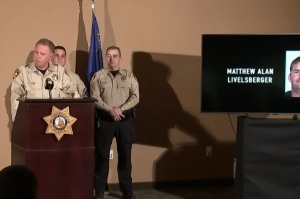Pastoral Ministry no Longer the End to Seminary Enrollment
Recent statistics revealed that seminary graduates are increasingly entering ministry fields outside of the traditional altar and pulpit career path.
Recent statistics revealed that seminary graduates are increasingly entering ministry fields outside of the traditional altar and pulpit career path.
According to the article on the usnews.com, the online edition of U.S. News & World Report, this is a big contributing factor to the overall increase in seminary enrollment for the past ten years. In spite of the dramatic decline of 19 percent in the number of seminarians taking the “usual” career path in pastoral ministry during the past five years, students are increasingly pursuing theology education to master skills in areas such as counseling and administration.
Apparently, there is a rise in enrollment particularly among the evangelical seminaries, according to Dr. Randy MacFarland, vice president of Denver Seminary, a Colorado-based evangelical theological school.
“Growth has been particularly strong in the evangelical seminaries,” MacFarland told the Christian Post.
MacFarland explained that many individuals who are going through theological training are getting involved in a wide range of ministries.
“To give you an example, one of our graduates is working on the CS Lewis project, the production of The Lion, the Witch and the Wardrobe to be released in December 2005,” he said. “He’s been a pastor for 30 years prior to moving into that area. There is another student who is directing the Denver Rescue Mission and another in academics.”
“And counseling has become a large new field,” he added.
While divinity degree is being pursued by many older students as a way to launch a second career in counseling or teaching fields, there are others who enroll to simply include faith in the world, according to the report.
Many wish to learn how to apply their religious belief to their current workplaces such as hospitals, jails, and nonprofit organizations.
In spite of the general increase in the enrollment, the seminaries are facing the challenge of declining students going into parish ministry upon graduating from seminaries.
“We are experiencing certainly some shortages,” agreed MacFarland.
However, he stated that there is growth that is seen in very large churches and there are individuals moving into staff positions in large churches, though not into pastoral roles.
“There is a new book coming out in May entitled “Pastors in Transition: Why Clergy Leave Local Church.” The part of issue may surround trying to support clergy in initial five years, said MacFarland. "It’s a multifactor kind of issue that involves certainly the preparation of the individual or parish ministry during that initial five-year period where there could be a lot of drop outs.”
He went on to say that in African American churches, for example, the individuals are identified by the congregation and given the opportunity to minister early on.
“African Americans have historically done well in this area, identifying them in earlier age, supporting and encouraging them to a call in parish ministry.”
“It is multifaceted in that there is a need to better prepare them to challenge in parish ministry during the first five years. There is a need for the individuals to work more closely with the local church that will identify them as individuals that are called to ministry.”





























